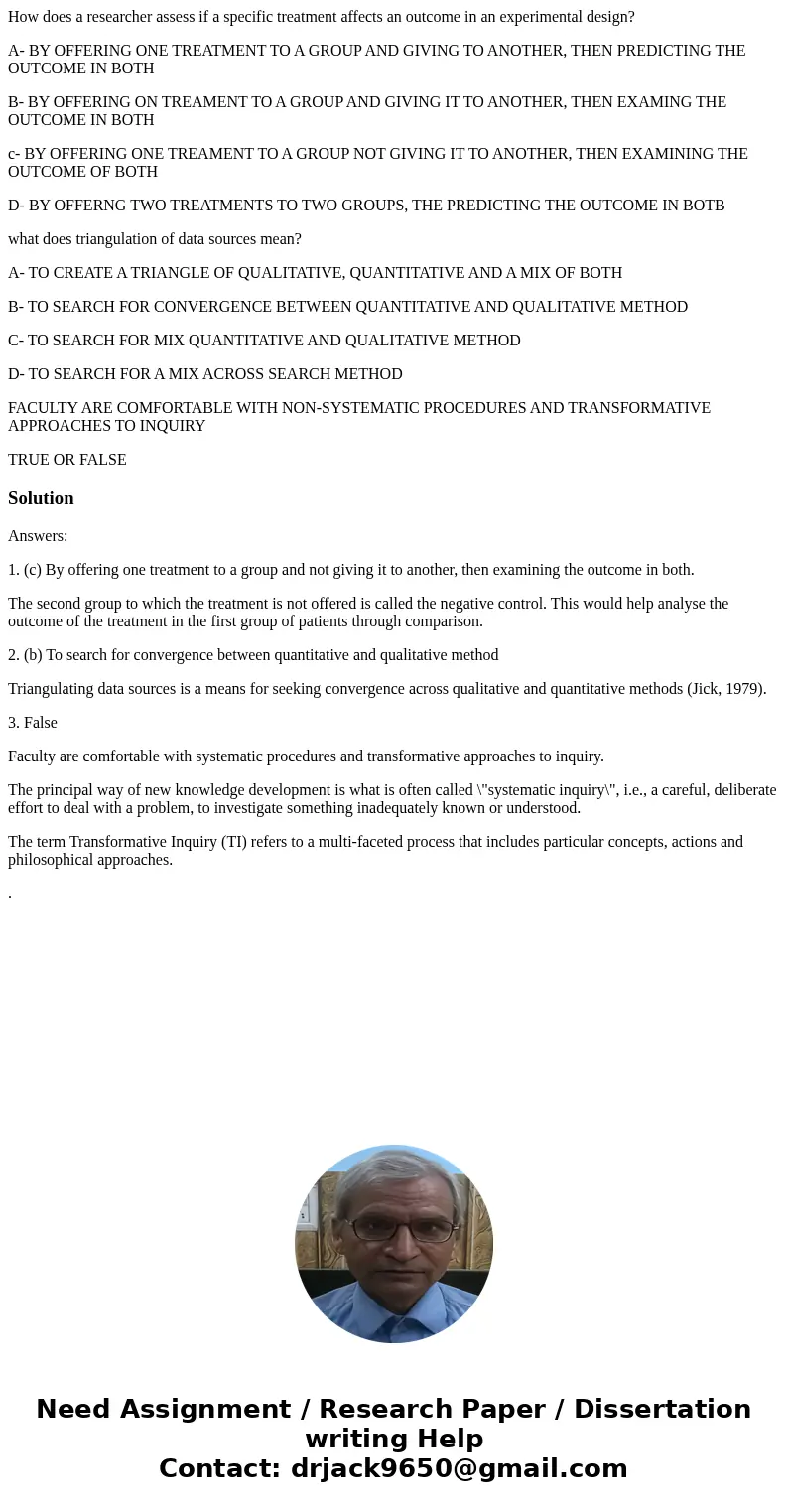How does a researcher assess if a specific treatment affects
How does a researcher assess if a specific treatment affects an outcome in an experimental design?
A- BY OFFERING ONE TREATMENT TO A GROUP AND GIVING TO ANOTHER, THEN PREDICTING THE OUTCOME IN BOTH
B- BY OFFERING ON TREAMENT TO A GROUP AND GIVING IT TO ANOTHER, THEN EXAMING THE OUTCOME IN BOTH
c- BY OFFERING ONE TREAMENT TO A GROUP NOT GIVING IT TO ANOTHER, THEN EXAMINING THE OUTCOME OF BOTH
D- BY OFFERNG TWO TREATMENTS TO TWO GROUPS, THE PREDICTING THE OUTCOME IN BOTB
what does triangulation of data sources mean?
A- TO CREATE A TRIANGLE OF QUALITATIVE, QUANTITATIVE AND A MIX OF BOTH
B- TO SEARCH FOR CONVERGENCE BETWEEN QUANTITATIVE AND QUALITATIVE METHOD
C- TO SEARCH FOR MIX QUANTITATIVE AND QUALITATIVE METHOD
D- TO SEARCH FOR A MIX ACROSS SEARCH METHOD
FACULTY ARE COMFORTABLE WITH NON-SYSTEMATIC PROCEDURES AND TRANSFORMATIVE APPROACHES TO INQUIRY
TRUE OR FALSE
Solution
Answers:
1. (c) By offering one treatment to a group and not giving it to another, then examining the outcome in both.
The second group to which the treatment is not offered is called the negative control. This would help analyse the outcome of the treatment in the first group of patients through comparison.
2. (b) To search for convergence between quantitative and qualitative method
Triangulating data sources is a means for seeking convergence across qualitative and quantitative methods (Jick, 1979).
3. False
Faculty are comfortable with systematic procedures and transformative approaches to inquiry.
The principal way of new knowledge development is what is often called \"systematic inquiry\", i.e., a careful, deliberate effort to deal with a problem, to investigate something inadequately known or understood.
The term Transformative Inquiry (TI) refers to a multi-faceted process that includes particular concepts, actions and philosophical approaches.
.

 Homework Sourse
Homework Sourse